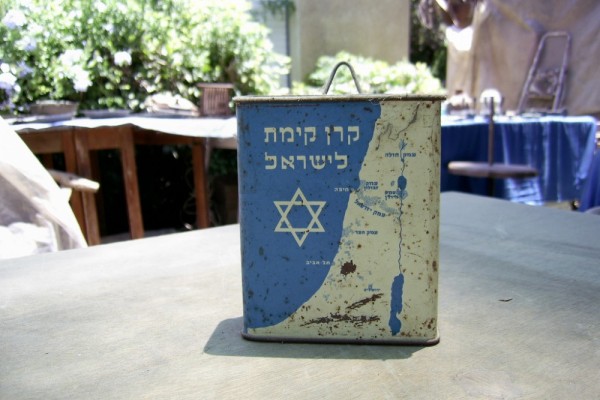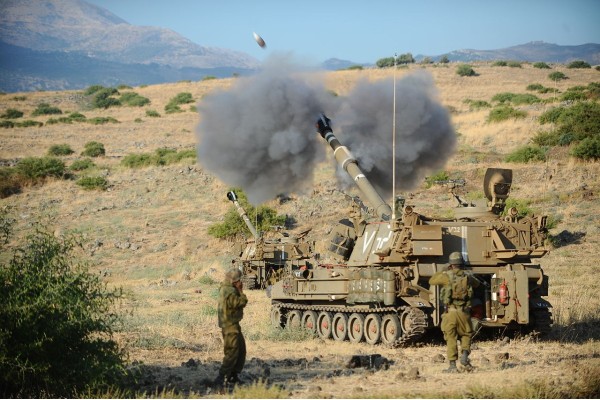The changing tide of public opinion threatens Israel’s crumbling legitimacy
What was once a fringe position is now the majority view, as Israel’s brutality radicalizes even the previously apolitical
_800_589_90.jpg)
Tattered Israeli flag in Jerusalem. Photo by David Shankbone/Wikimedia Commons.
You wouldn’t have heard about it in the Canadian mainstream media, but Hamas was explicit about its strategic objectives on October 7, 2023—among them, to force renewed global attention on the Palestinian struggle and delegitimize Israel on the world stage.
In the wake of the attack, Canadian legacy outlets adopted Israel’s framing not only of what had happened, but why—presenting it as an unprovoked spasm of terroristic brutality carried out by a horde of unthinking barbarians, rather than a desperate yet meticulously planned act of violent resistance set against the backdrop of Israel’s 77-year history of ethnic cleansing and occupation.
The media not only adopted this general narrative framing, but also frequently parroted Israeli misinformation about specific atrocities. The CBC News Network, for instance, allowed an Israeli government advisor to air lies that Hamas “beheaded children [and] burnt babies alive” without pushback. Meanwhile, the National Post website still hosts an article featuring a fabricated image of a burned baby.
In November 2023, the New York Times, which also published debunked Hamas atrocity propaganda without retraction, at least interviewed senior Hamas leader Khalil al-Hayya about the group’s motives. Al-Hayya explained that Operation Al-Aqsa Flood was intended to “change the entire equation” in the region and argued that the assault had “succeeded in putting the Palestinian issue back on the table.”
Similarly, in December 2023, when asked about the aims of October 7, Hamas political bureau member Osama Hamdan told the Turkish national broadcaster, TRT, that “everyone is talking now about the Palestinian cause.” The operation, he suggested, had quickly shown “everyone the clear and the right face of Israel, as… a savage occupation.”
Whether one condemns the militants’ tactics or questions if the staggering human cost Israel has since inflicted on Gaza and the West Bank could ever be worth the price—a debate that divides Palestinians themselves—there is no denying that Hamas has achieved this objective.
Before October 7, the Sunni Arab states were moving to normalize relations with Israel, while mainstream media largely ignored, or even justified Israel’s periodic attacks on the Gaza Strip as well as peaceful protest actions by Palestinians, such as the Great March of Return. Even Jewish American political scientist Norman Finkelstein, who had devoted decades to documenting Israeli crimes, admitted he had given up on the cause because it seemed “pointless.”
Yet after October 7, the Palestinian issue forced itself into the consciousness of those who had long ignored it. And as Israel’s genocidal campaign grinds on, public sympathy for Palestine has only deepened while sympathy for Israel erodes.
The changing tide of public opinion
A Leger poll of Canadians and Americans, commissioned by the National Post and published in June 2025, found that 45 percent agreed that “Israel is committing genocide in the Gaza Strip,” up two points from January. Meanwhile, disagreement with the statement fell to 23 percent from 31 percent.
As starvation deaths mount in Gaza, just over half of Canadians (52 percent) now believe Israel is committing genocide in Gaza, according to an Angus Reid poll published on August 6, 2025. This marks an 11-point increase since February 2024. What was once deemed a controversial position has become the majority view in Canada.
A review of publicly available Canadian polls since 1983 shows a historic shift in public sympathies. For the first time, beginning in May 2024, more Canadians sided with Palestinians than with Israelis.
In the immediate aftermath of October 7, Israel held a 10-point advantage but by May 2024, that edge had disappeared, with support for Palestinians leading by three points. At the time of writing, the gap has widened dramatically: 37 percent of Canadians now sympathize more with Palestinians, compared to just 19 percent with Israelis—an 18-point lead.
Likewise, across Western Europe, support for Israel has reached its lowest level on record. In Great Britain—the principal architect of the Zionist state—55 percent of the population now opposes Israel’s military actions.
In the United States, according to an August 2025 Economist/YouGov poll, 65 percent of Democrats believe that Israel is committing genocide in Gaza, up from 49 percent in January 2024. Among Democratic voters, support for Israel’s assault has plummeted from 36 percent in 2023 to just eight percent today, according to Gallup. Nor is this shift confined to Democratic voters. Pew has found that since 2022, young Republicans have shifted from 35 percent to 50 percent holding an unfavourable view of Israel.
Despite brutal crackdowns, mass demonstrations against Israel’s onslaught in Gaza continue unabated across the US and European capitals. The smear of equating criticism of Israel with antisemitism is losing its force. In the UK, police have arrested hundreds—including a blind wheelchair user, an octogenarian priest and a retired magistrate—for showing their support for Palestine Action, a non-violent direct action group that the British government of Kier Starmer has proscribed as a “terrorist organization.” Yet even the threat of an up to 14-year prison sentence has not deterred Britons from showing their solidarity. After 23 months of journalists burned alive, babies starved to death, and desperate civilians shot while queuing for aid, Palestine is no longer a fringe left-wing cause. Israel’s brutality has radicalized even the previously apolitical.
Do shifts in polling actually influence policy?
In Canada, no polling has measured how much Gaza in particular influenced voting in the 2025 federal election. What is clear, however, is that the ruling Liberal Party has come under pressure: announcing an arms embargo on Israel (and then quietly breaking it), imposing selective sanctions on extremist settlers and Netanyahu’s most openly genocidal ministers, and even flirting with recognition of a Palestinian state. Yet while these gestures signal a shift, Ottawa has still taken no concrete steps that would actually constrain Israel.
Canadian gestures matter, but it is US military aid and diplomatic cover that ensures Israel’s survival as an expansionist apartheid state. For Washington’s bipartisan political establishment, Israel remains a linchpin of American power in the Middle East. As Joe Biden declared, “If there wasn’t an Israel, we’d have to invent one.”
Israel’s genocidal war after October 7 has undeniably shifted US public opinion: more Americans now believe Israel is committing genocide in Gaza than not, and a majority oppose sending it weapons. The question is whether this shift will translate into policy. Polling by the Institute for Middle East Understanding/YouGov shows that Gaza was the top reason 2020 Biden voters abandoned Kamala Harris in 2024. And Zohran Mamdani’s victory in the New York Democratic mayoral primary shows how strongly the anti-genocide position resonates with Democratic voters—particularly younger constituents, including many Jews. If Democrats are serious about winning in 2028, they would be wise to abandon unconditional support for Israel and represent their base. But that doesn’t mean they will.
Meanwhile, the global context is shifting rapidly. Since October 2023, ten more countries, including Ireland, Norway, and Spain, have formally recognized Palestine, bringing the total to 147 of 193 UN member states. US global dominance is itself waning as de-dollarization accelerates, while the Global South—where most governments recognize Palestine and most people sympathize with its struggle—is gaining influence. Leaders such as Brazil’s Lula da Silva are pushing for reforms to the UN Security Council that would remove the veto power of the US and other permanent members. If successful, such changes would further erode Israel’s already weakened international standing.
The end of Zionism?
As Israeli historian Ilan Pappé wrote in New Left Review, “Hamas’s assault of October 7 can be likened to an earthquake that strikes an old building. The cracks were already beginning to show, but they are now visible in its very foundations.”
He argued that we are witnessing the beginning of a historical process likely to culminate in the collapse of the ethnonationalist project of Zionism. As Israeli society grows more messianic and genocidal, and the state fails in its stated core duty to protect its own Jewish citizens—sometimes even abandoning or killing them—many are fleeing. Nearly 60,000 Israelis left the country in 2024, more than twice the number in 2023. Facing a shortage of 12,000 troops, the Israeli army is even considering looking at former deserters and foreign fighters to fill the ranks. The economy is also teetering toward catastrophe, worsened by mounting academic and business boycotts targeting what has, since October 7, become a pariah state.
While settler colonialism prevailed in the United States and Canada, it was ultimately defeated in South Africa, Algeria, and Rhodesia after long, bloody struggles. In Namibia, the Indigenous population endured genocide at the hands of Israel’s ally, Germany, before eventually achieving independence decades later.
Pappé emphasizes that the final chapter of any imperial project is often the most ruthless, ambitious and absurd—before it collapses. “It’s not a question of will it happen, but it is a question of when,” he writes.
It is difficult to summon optimism in the face of such horror, especially as Israel moves to occupy Gaza City while redoubling its efforts to accelerate West Bank settlement expansion to “bury the idea of a Palestinian state.” Yet surrender is not an option—least of all for Palestinians themselves.
Their steadfast resistance, bolstered by growing global solidarity, must strengthen our resolve. This struggle is not only about Palestine: if the West allows Israel to complete its campaign of genocide and ethnic cleansing, the legal order built after the Nazi Holocaust will not merely be weakened—it will be buried.
Mary J. Newman is a British-Canadian writer and producer who has worked for the BBC, CBC and The Walrus. She is a founding member of Canadian Journalists for Justice in Palestine.










